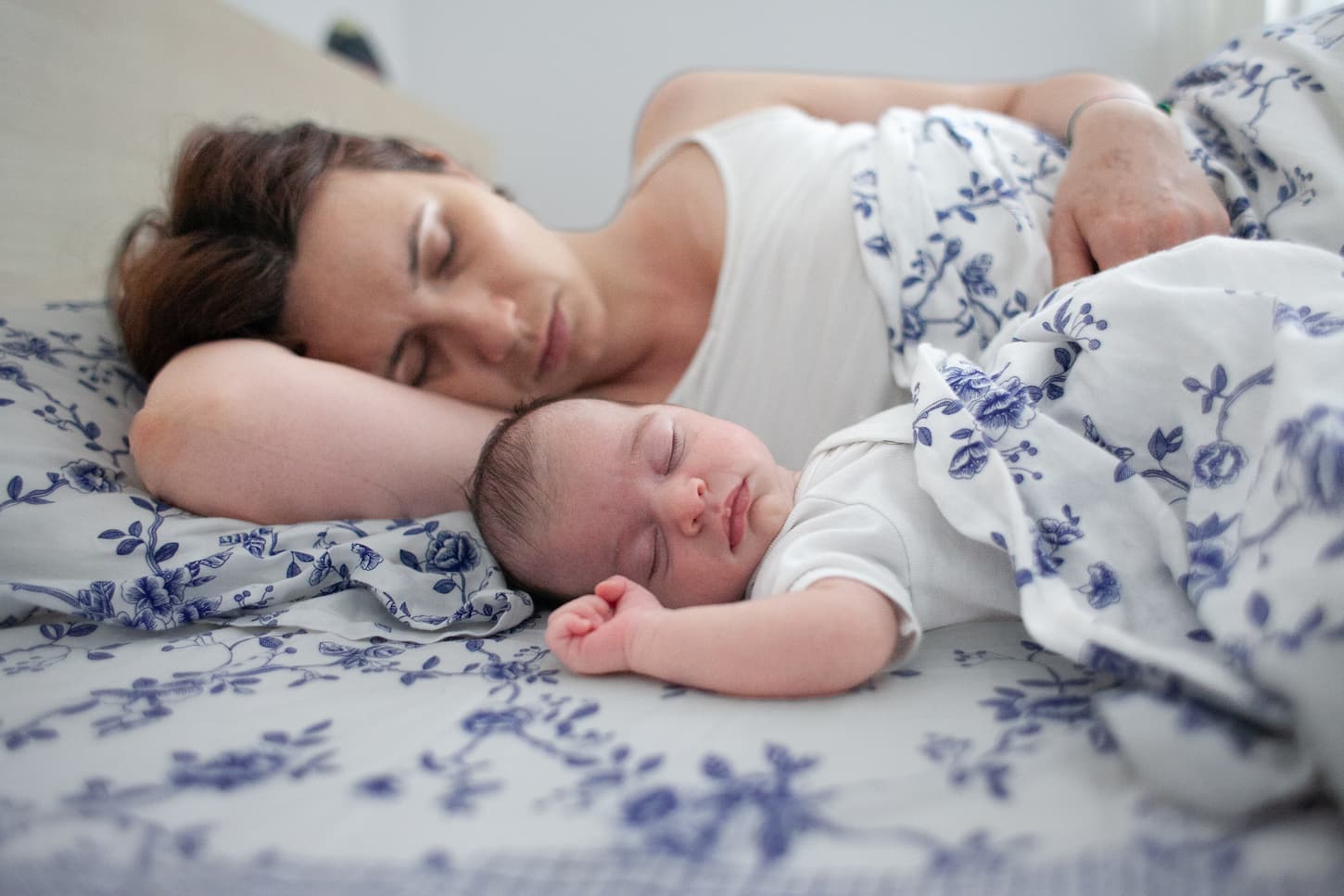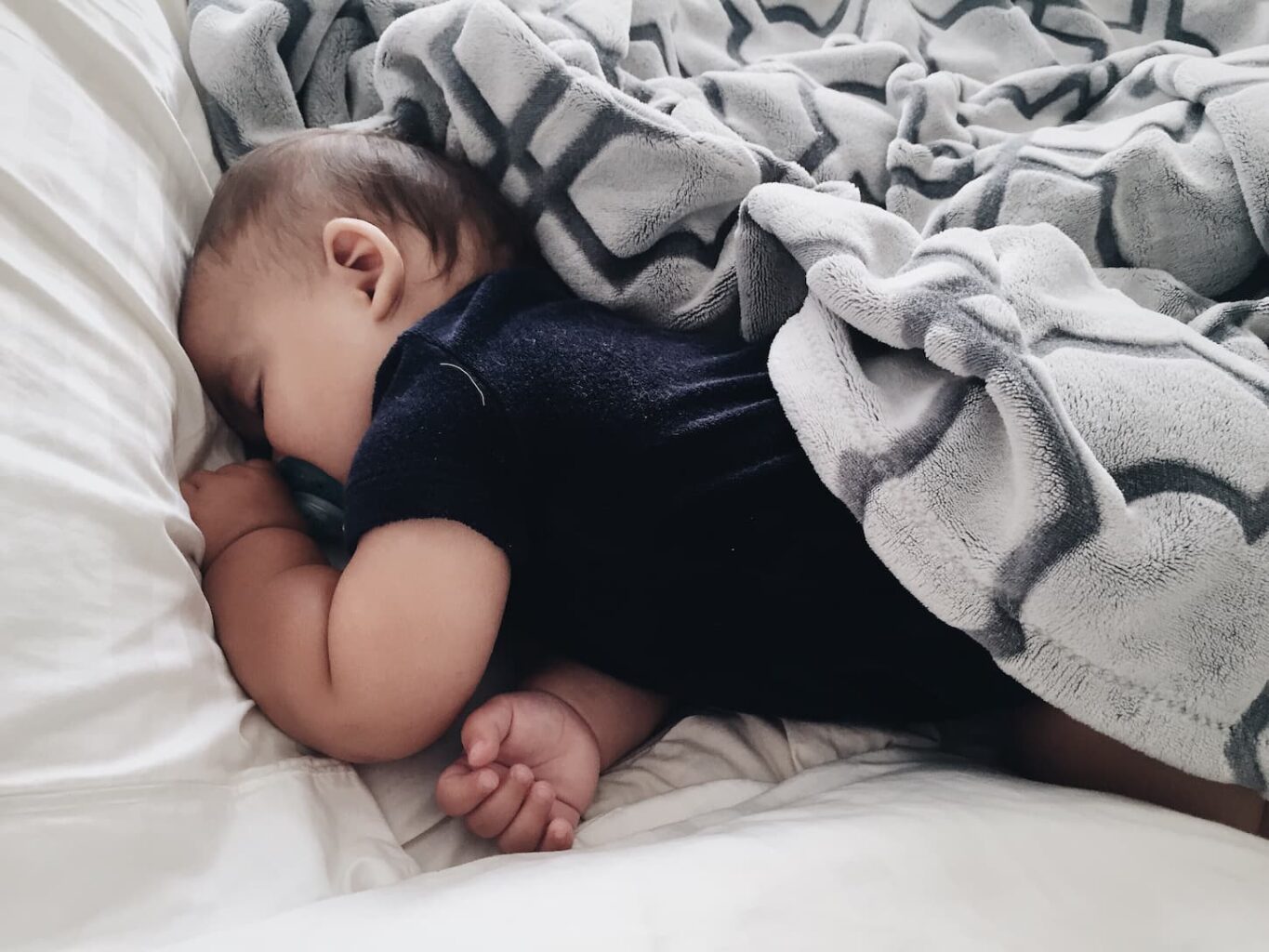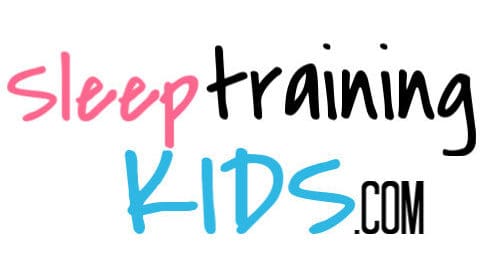Sleep is a complex mechanism, many processes interact to enable your baby’s ability to get a good night’s rest. Now, that nugget isn’t super helpful when you’ve got a cranky baby – and you’re feeling sleep-deprived, too. And with all of the experts telling us we can put our babies to bed early, we (very reasonably) wonder if this is just such a scenario. But is it too early?
In general, the AASM and AAP say the actual bedtime doesn’t have as big of a bearing on a child’s health as does the overall consistency of good sleep over time. Therefore, putting a baby to bed “too early” isn’t usually a long-term concern, as long as they’re getting adequate restful sleep.
So, the short answer to the question is “it depends.” Read on for the long answer. Because there always seem to be extenuating or special circumstances, right?

So, Can You Really Put Your Baby to Bed Too Early?
Generally speaking, the time you put your baby to bed doesn’t matter too much. As long as there is a consistent sleep schedule that matches the recommendations of the American Academy of Sleep Medicine, and fits your own schedule, then your baby’s sleep health should be fine.
So if your baby has an “early” bedtime regularly, then it’s not too early if it’s working for your family. If it’s not working for your schedule and family? Then go ahead and change it. But if it’s a one-time “too early” bedtime? Well, then it may or may not work anyway, depending on how tired your munchkin is.
However, there can be a bunch of situations where you are in fact putting your baby to bed too early in the short term, and thus need to adjust his/her bedtime. The two major scenarios are:
- When you’re trying to maintain a sleep schedule that you can properly merge with your own daily schedule.
- If your baby’s sleep cycle has programmed him/her to sleep at a later time.
Every other scenario is usually a variation of the two mentioned above.
Tired babies will probably do well with a “too early” bedtime for a couple of days. Babies that have adequate rest will probably continue to fall asleep at their regular time.
Is It Okay to Put Your Baby to Bed Early?
Although there are many variables governing sleep, there are three major processes you need to consider when attempting to set a bedtime. They are sleep pressure, circadian rhythms, and your baby’s age. Let’s briefly examine what these terms mean:
Sleep pressure: the pressure you feel to fall asleep
Also known as homeostatic sleep drive, sleep pressure is basically the feeling of sleepiness (source: CDC) we’re all familiar with: the heavy eyelids and a strong desire to lay down. It’s a homeostatic process that begins the moment we wake, and the longer we’re awake, the stronger it becomes.
Sleep pressure can also build faster in certain situations. For example, when we engage in more physical activity than usual, when we’re ill, or when we undergo situations that require a lot of mental effort. Let’s move on to circadian rhythms.
Babies’ sleep pressure varies by their age. Newborns, for example, have sleep pressure that keeps them dozing off every few hours. Toddlers, on the other hand, don’t usually need to nap every 2-3 hours.
Circadian rhythms manage the internal clock
Circadian rhythms are a bunch of processes in your body that, in simple terms, manage your internal clock and thus your sleep and wake cycles. They are found in many organisms, including plants too, and also serve the same function of regulating the organisms’ day and night cycles.
For example, the circadian rhythms in nocturnal animals are what keeps them in their shelters till sundown. In human beings, this mechanism is governed by a ‘master circadian clock’ in the part of the brain we know as the hypothalamus.
This ‘clock’ uses light and the brightness of the environment to help determine the time of day and thus promote either sleepiness (in partnership with sleep pressure) or wakefulness.
So if your baby’s circadian rhythm seems to be beating to the wrong drum, make sure you spend time outside in the sun every day. It won’t fix things overnight, but it will over time.
Your baby’s actual and developmental age matters
Your baby’s biological bedtime, apart from being reliant on circadian rhythms and sleep pressure, also depends on his or her age. And by age, we mean both actual and developmentally adjusted ages.
For example, a newborn infant’s (0-6 weeks) sleep cycles and sleep requirements are not the same as those of a child of three months. And that’s going to change even more as we adjust developmental age if the baby was born prematurely.
In general, use your baby’s actual due date to determine where they should be based on statistical norms. If your baby has a developmental delay, use that baseline to help you figure out the appropriate age for your child.
The table below, from our article on managing sleep regression, outlines the average sleep cycles for children from newborn to preschool age. These are based on statistical norms from the American Academy of Pediatrics, the CDC, and other sleep data by government agencies.
| Age | Number of Naps | Average Nap Length | Wake Time Between Naps | Bedtime | Nighttime Sleep Requirements | Sleep Needed in 24 Hours |
|---|---|---|---|---|---|---|
| Birth to 6 weeks | 4 to 8 | 15 minutes to 4 hours | 45 minutes to an hour | Between 9 and 11 PM | 8 to 14 hours | 14 to 18 hours |
| 6 weeks to 3 months | 3 to 4 | 30 minutes to 2 hours | 1 to 2 hours | Between 8 and 11 PM | 8 to 13 hours | 11 to 15 hours |
| 3-6 months | 3 | 1 to 2 hours | about 2 hours | 8 to 10 PM | 9 to 12 hours | 12 to 16 hours |
| 6-9 months | 3 | 1 to 2 hours | 2 to 3 hours | 8 to 10 PM | 9 to 12 hours | 12 to 14 hours |
| 12-18 months | 1 to 2 | 1 to 2 hours | 3 hours | 7 to 8 PM | 10 to 12 hours | 12 to 14 hours |
| 18 months to 3 years | 1 | 1 to 2 hours | N/A | 7 to 8 PM | 10 to 12 hours | 11 to 14 hours |
| Preschoolers | 0 | N/A | N/A | 7 to 8 PM | 10 to 13 hours | 10 to 13 hours |
| Grade schoolers | 0 | N/A | N/A | 7 to 8 PM | 9 to 12 hours | 9 to 12 hours |
| Teenagers | 0 | N/A | N/A | 8 to 10 hours | 8 to 10 hours |
So, as we’ve seen from the factors listed above, your baby has a predefined sleep pattern that is mostly determined by biology. That said, biology is responsive and this pattern can be shifted by making changes to things such as bedtime, among others.
So, in essence, it is okay to put your baby to bed early if circumstances call for it. Now that that question is out of the way, let’s examine what these circumstances are.
When Should I Put My Baby to Bed Earlier?
There are a lot of situations where putting your baby to bed earlier than usual is the right thing to do. Here are a few common ones:
- If your baby misses a nap or has been constantly missing nap sessions for abnormal reasons, then you may want to move their bedtime to earlier. Babies, the younger they are especially, need sleep. A baby that hasn’t napped enough will be overtired and this can cause him/her to wake up earlier than usual, or wake up multiple times during the night, leading to increased sleep debt and crankiness over time.
- Sleep regression, which occurs naturally as your baby grows, can also cause their sleep patterns to shift and can lead to a lower number of naps and waking up multiple times at night. We’ve written about it and what to do when it happens, you can find the link to that in the resources section.
- On days when your schedule results in more activity for your baby than usual, for example, you have errands to run and have to take your child with you and thus disrupting their daily patterns.
- Your baby constantly exhibits signs of tiredness, such as a lack of interest in people in the environment and constant yawning.
- If your baby has a mild illness, then your baby could benefit from the extra rest afforded by an earlier bedtime. When in doubt, please talk to your pediatrician.

Final Thoughts on Early Bedtimes VS Too-Early Bedtimes
Speaking as a mom of four children, there will be times when you think your child needs an earlier-than-usual bedtime. Most of the time, you’re going to be right. Your baby may fight an earlier bedtime, but it will help.
However, there will also be times when your guess that an earlier bedtime is the cure-all will be wrong. It won’t work – even after a few days of trying. That’s normal, too. It’s going to take time to get all of this figured out – so keep at it and don’t feel bad when you get it wrong from time to time.
But knowing that the science says that a few too-early bedtimes won’t be a problem long-term? That’s hugely relieving – even for me. So know that it’s a good tool to keep in your parenting toolbelt. And use it when it seems appropriate. But if you’re ever at all worried? Please don’t hesitate to talk to your pediatrician.
Resources
Learning about parenting or sleep training techniques is important to learn from various reputable sources. These are the sources used in this article and our research to be more informed as parents.
- “How Sleep Works.” National Heart Lung and Blood Institute, U.S. Department of Health and Human Services, www.nhlbi.nih.gov/health-topics/how-sleep-works.
- “Module 2. Sleep Pressure: Homeostatic Sleep Drive.” Centers for Disease Control and Prevention, Centers for Disease Control and Prevention, 31 Mar. 2020, www.cdc.gov/niosh/work-hour-training-for-nurses/longhours/mod2/11.html.
- Paruthi, Shalini, et al. Recommended Amount of Sleep for Pediatric Populations: A Consensus Statement of the American Academy of Sleep Medicine. Journal of Clinical Sleep Medicine, aasm.org/resources/pdf/pediatricsleepdurationconsensus.pdf.
- Vitaterna MH; Takahashi JS; Turek. “Overview of Circadian Rhythms.” Alcohol Research & Health: the Journal of the National Institute on Alcohol Abuse and Alcoholism, U.S. National Library of Medicine, pubmed.ncbi.nlm.nih.gov/11584554/.
